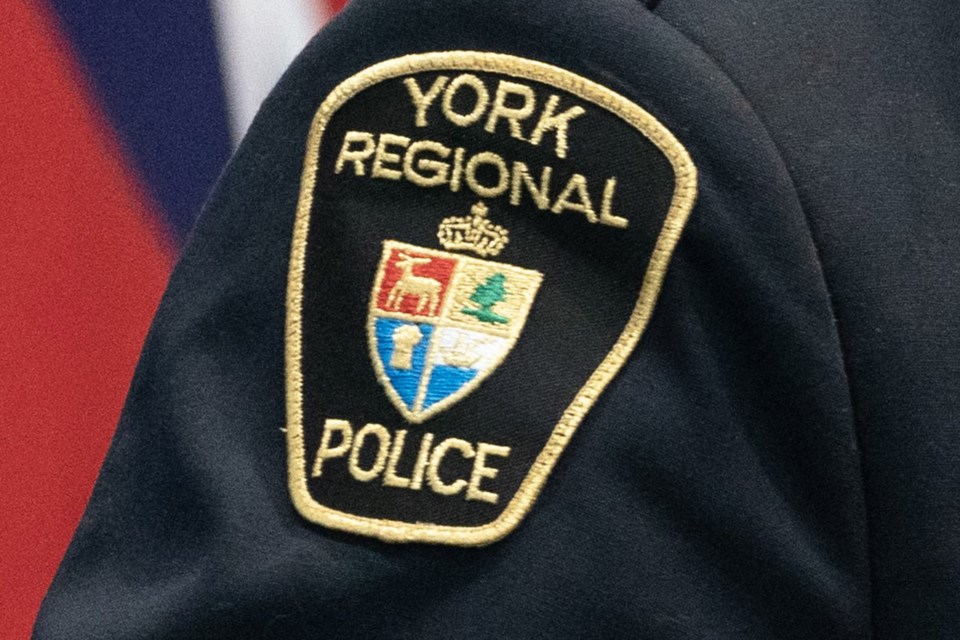TORONTO — Scott Cresswell was behind the wheel of an unmarked white police truck as he drove across the Greater Toronto Area looking for compounds that might be used to hide stolen vehicles.
The York Regional Police detective entered a crowded commercial zone in Mississauga, Ont., where dozens of cars were parked, scanning for suspicious signs. He then drove to a neighbourhood outside the Halton Hills region, where a large, isolated home sat near farmland, surrounded by a fenced yard.
After inspecting the property from the outside, Cresswell said he had strong reason to suspect it could be a "cool off" site where stolen vehicles are kept for a few days to ensure they aren't being tracked.
“That is the spot,” Creswell told his colleague over the phone. "This is a dynamite spot."
The country has an auto theft problem so severe the Insurance Bureau of Canada has called it a “national crisis.” The issue is particularly acute in the Greater Toronto Area, where police forces have been refocusing efforts on tackling the situation.
In York Region, made up of nine communities north of Toronto, Cresswell's unit of 10 officers is on the front lines of attempts to combat auto theft. The unit is tasked with surveillance, tracking and arresting suspects. The team also aims to return stolen vehicles to their owners.
While driving from site to site on a surveillance mission, Cresswell said dozens of criminal groups are involved in auto theft across southwestern Ontario, motivated by what he called a massive supply of high-end vehicles parked on easily accessible driveways.
"The issue is that the cars are super valuable," he said. “They're very easy to steal, they're in high demand overseas.”
That creates a "perfect situation" for thieves, the detective said, particularly as stolen vehicles can fairly easily be taken to the Port of Montreal and shipped out of the country.
Most stolen cars head to countries in Africa and the Middle East, where Toyotas and Hondas as well as luxury brands such as Lexus and Range Rovers are in demand, Cresswell said. Electric vehicles often aren't targeted because of a lack of charging infrastructure in those countries. A small percentage are disguised as new cars and resold in Canada, he said.
More than 70,000 private vehicles were stolen across Canada last year, with more than 30,000 taken in Ontario, according to the Équité Association, an anti-crime organization funded by insurance companies.
Those statistics have been noticed internationally: in a report published earlier this year, Interpol said Canada was among the top 10 worst countries out of 137 for stolen vehicles, based on data collected between February and May.
The overall picture might be looking slightly better this year –the first six months of 2024 saw a decline of 17 per cent in auto theft over the same period in 2023, according to the Équité Association.
But a new problem has emerged.
"There has been a decrease in overall car theft,” Cresswell said. “But there has been an uptick … in carjackings as well as overnight break-and-enters for car keys."
Last month, York Region's police chief said the force had seen 64 violent carjackings this year, a surge of 106 per cent over the same period in 2023 and a 400 per cent jump compared to 2019.
The force announced it would form a task force specifically to combat carjackings.
In Toronto, police said in June that there had been 149 carjackings, a hike of 86 per cent compared to the year before.
Mark Mendelson, a former police officer who now runs a consulting firm in Toronto, said the rise in carjackings is worrying because those are far more "traumatic."
“When you're stealing a car from somebody's driveway at four in the morning, yes, it's a violation to the victims but there was no threat of violence," he said.
"When you are the victim of physical violence, like a robbery in an intersection or a shopping mall parking lot, it's very, very different."
Auto theft has surged dramatically since the COVID-19 pandemic hit, with thieves donning masks and hoodies and using devices to clone key fobs before breaking into parked cars and driving off.
Car owners are now trying to safeguard their vehicles with steering wheel locks, Faraday pouches for their keys to hide fob signals and air tags to track vehicles.
The barriers might have prompted thieves to resort to more brazen attempts, Mendelson said.
"They realized that sometimes the simplest method is to follow the vehicle that they wanted, wait until they got to a red light or a stop sign … where people are not on guard," he said. "The next thing you know people were running up to the vehicles armed with knives and firearms."
A multipronged approach involving all levels of government, law enforcement and auto manufacturers is needed to address the issue, Mendelson said.
The federal government convened an auto theft summit in February, urging closer collaboration between law enforcement, border services, the insurance industry and automakers.
The Insurance Bureau of Canada has said the cost of insurance claims for stolen vehicles surpassed $1.5 billion in 2023, which was 20 per cent more than 2022.
The situation is making it more expensive for car owners to insure their vehicles. In Ontario, the bureau estimates auto theft adds around $130 to the average annual premium.
“If you drive one of the vehicles on the high theft list, there is a chance you're going to be paying a little bit extra for your insurance," said Morgan Roberts, vice-president of insurance at Ratehub.ca.
The incredible pace of technological advances has contributed to the evolution of car thefts, said Cresswell, the York Region detective.
"They could still break into the car, reprogram a key, but it would take them 10 minutes, seven minutes," he said about theft in the past. "Now they do it in one minute."
This report by The Canadian Press was first published Sept. 28, 2024.
Sharif Hassan, The Canadian Press

